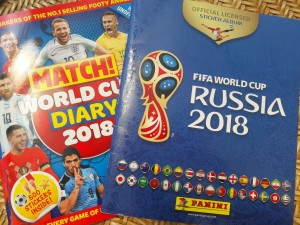Football fever has struck the Browning household again with the kick-off of the women’s World Cup in France. Watching the Lionesses play their first match from the stands in Nice, I was reminded once more of the importance of good (and bad) communication in determining the final score. Here are a few observations I wrote during the men’s world cup last year:
My thoughts have turned to the communication lessons we can learn from the world around us. The winning and losing teams in Russia are yet to be revealed – although there’s no shortage of opinions and predictions – but you can guarantee that as well as skill and luck, good communication will play a key part in who lifts the trophy and who takes an early flight home. There are many ways in which the communication skills of the managers, players and even the fans will be important. And here’s my top tips to learn from:
- Story-telling. The World Cup is all about stories. The plucky under-dogs who come from behind to beat the group leaders. The star striker who can’t buy a goal, then finally finds the back of the net with the last kick of the game. The way teams earn their place in the semi-finals, with each win or draw like a chapter in their story. And these stories are the reason so many people around the world follow the tournament and get caught up in the emotion, the ups and downs.
Top tip: In the same way, organisations need to create stories with emotion that really engage their audience.
- Teamwork. It seems obvious, but the key to a team being at the top of their game and running rings round the opposition is communicating well with each other. They need to know what part they play and what their team-mates are going to do. They need to work together to achieve their goal (literally or figuratively) and understand the bigger picture.
Top tip: It’s exactly the same for teams within an organisation – they need to understand what they’re part of and communicate well with each other.
- Leadership. It’s not just the members of the team who need to communicate well; their manager must get it right too if they’re to be successful. From his expectations of each individual player to his plan for each game and his half-time talk, the players will listen to what he says, be motivated (or not) and understand (or not) what they have to do. The relationship between him and his players is an important guide for him on what to say, when and how.
Top tip: Managers in organisations need to get to know their people too, so that they can judge what will motivate and bring them together as a successful team.
- Shared interest and connections. Fans of the World Cup have many ways to share their views with others and conduct the all-important pre- and post-match analyses (and social media now makes in-match analysis easy too). There are online forums, radio phone-ins and chats in the pub, to name a few. Having that shared interest and common language makes it easy to build a community.
Top tip: If you’re a communicator in an organisation, find, or create, common interests and connections and then give people ways to discuss them. It’s a brilliant way to build collaboration in all areas, not just the original common topic.
So that’s my take on it – what’s yours? Whether you’re counting down to every kick off or refusing to join the office sweep-stake, there’s something for all of us in the World Cup. And if you’d like help in working out how these lessons can be applied in your organisation, please get in touch for a chat to see how we could work together.
Until next time
Sarah
This blog piece originally appeared at the time of the last World Cup – the lessons still hold true, so I adapted it for this one!

